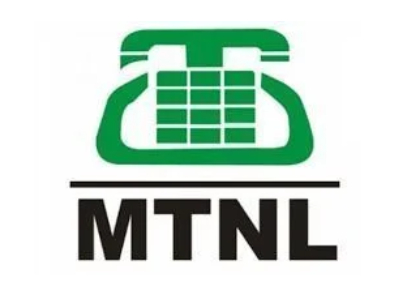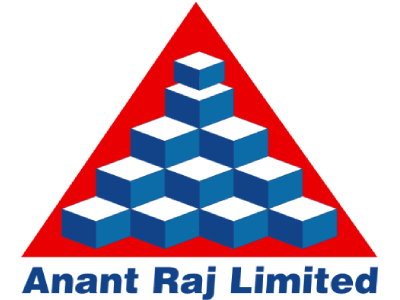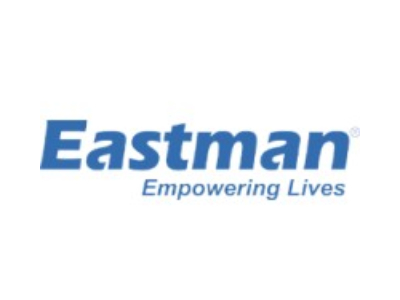FC-TRS
FC-TRS stands for Foreign Currency-Transfer of Shares. It refers to the reporting requirement for the transfer of shares or convertible debentures between a resident and a non-resident in an Indian company. The FC-TRS filing is an important step in ensuring compliance with the regulations and guidelines established by the Reserve Bank of India (RBI) regarding foreign exchange transactions related to share transfers.
FC-TRS stands for Foreign Currency-Transfer of Shares. It refers to the reporting requirement for the transfer of shares or convertible debentures between a resident and a non-resident in an Indian company. The FC-TRS filing is an important step in ensuring compliance with the regulations and guidelines established by the Reserve Bank of India (RBI) regarding foreign exchange transactions related to share transfers.
FC-TRS filing must be completed within 60 days from the date of the transfer of shares or receipt of the remittance, whichever is earlier. Adhering to the prescribed timeline is crucial to ensure compliance with the reporting requirement.
Free Call Back by our Expert
Here are some key characteristics of FC-TRS
- Overview
- Benefit
- Listicles
- Registration Procedure
An Overview of FC-TRS
FCTRS stands for Fuzzy Cognitive Time Reversal System. The concept combines fuzzy logic, cognitive computing, and time reversal techniques to create a system that can analyze and predict the behavior of complex systems.
Fuzzy logic is a mathematical framework that deals with uncertainty and imprecise information. It allows for the representation of vagueness and approximate reasoning. Cognitive computing, on the other hand, aims to simulate human-like intelligence by incorporating elements such as learning, reasoning, and problem-solving.
In the context of FCTRS, the system utilizes fuzzy logic to handle the inherent uncertainty and imprecision in complex systems. It leverages cognitive computing techniques to understand the system’s behavior, learn from its past actions, and make predictions about its future states.
- Handling Uncertainty: FCTRS leverages fuzzy logic, which allows for the representation of uncertainty and imprecision. This capability is particularly valuable when dealing with complex systems that exhibit non-linear behavior, incomplete information, or imprecise measurements. Fuzzy logic enables FCTRS to handle vagueness and approximate reasoning, providing a more robust approach to uncertainty management.
- Cognitive Understanding: FCTRS incorporates cognitive computing techniques, enabling it to simulate human-like intelligence. By utilizing cognitive processes such as learning, reasoning, and problem-solving, FCTRS can gain a deeper understanding of the complex system under analysis. This cognitive perspective enhances the system’s ability to interpret and learn from historical data, leading to more accurate predictions and insights.
- Time Reversal Analysis: The time reversal aspect of FCTRS is a unique feature that sets it apart from traditional analysis methods. By analyzing the historical data of a complex system in reverse chronological order, FCTRS can uncover hidden patterns, trends, and causal relationships. This reverse-time analysis allows for a fresh perspective on the system’s behavior and can reveal insights that may be obscured when analyzing the data in the usual forward direction.
- Prediction Accuracy: FCTRS aims to predict the future behavior of complex systems based on its analysis and understanding. By combining fuzzy logic, cognitive computing, and time reversal techniques, FCTRS has the potential to achieve higher prediction accuracy compared to conventional methods. The ability to handle uncertainty, learn from historical data, and leverage cognitive processes enhances the system’s predictive capabilities and helps identify potential outcomes with greater precision.
- Decision Support: FCTRS can provide valuable decision support in various domains. By analyzing the behavior of complex systems, identifying trends, and making accurate predictions, FCTRS can assist decision-makers in making informed choices. Whether it’s optimizing financial investments, managing energy resources, or predicting weather patterns, FCTRS can offer insights and recommendations that aid in effective decision-making.
- Combination of Techniques: FCTRS combines fuzzy logic, cognitive computing, and time reversal techniques to analyze and predict the behavior of complex systems.
- Uncertainty Management: FCTRS leverages fuzzy logic to handle uncertainty and imprecision in complex systems, allowing for the representation of vagueness and approximate reasoning.
- Cognitive Understanding: By incorporating cognitive computing techniques, FCTRS aims to simulate human-like intelligence, enabling it to learn, reason, and problem-solve to gain a deeper understanding of complex systems.
- Time Reversal Analysis: FCTRS analyzes historical data in reverse chronological order, uncovering hidden patterns, trends, and causal relationships that may not be apparent when analyzing data in the usual forward direction.
- Prediction Accuracy: FCTRS utilizes its understanding of complex systems and the insights gained from time reversal analysis to make more accurate predictions about future system behavior.
- Decision Support: FCTRS provides decision support by offering insights, recommendations, and predictions that aid decision-makers in making informed choices in various domains.
- Application Areas: FCTRS can be applied to domains such as finance, weather forecasting, energy management, and control systems, where analyzing and predicting the behavior of complex systems is crucial.
- Handling Non-linearity: FCTRS is particularly useful for complex systems that exhibit non-linear behavior, as it can effectively handle the inherent uncertainties associated with such systems.
- Learning from Historical Data: FCTRS leverages historical data to learn from past system behavior, allowing it to improve its understanding and prediction capabilities over time.
- Enhanced Predictive Capabilities: The combination of fuzzy logic, cognitive computing, and time reversal techniques enhances FCTRS’s predictive capabilities, leading to more accurate predictions of complex system behavior.
- Research Paper: If you are planning to publish a research paper on FCTRS, you would typically follow the publication guidelines of the target conference or journal. This might involve preparing the paper according to the specific formatting requirements, submitting it through an online submission system, and undergoing a peer review process.
- Patent: If you have developed a novel FCTRS-based invention and wish to protect your intellectual property, you may consider filing a patent application. The patent registration process varies by country but typically involves preparing a detailed description of the invention, filing the application with the relevant intellectual property office, and paying the necessary fees. Consulting with a patent attorney or agent is often recommended for guidance throughout the process.
- Application Development: If you are developing a software application or system incorporating FCTRS, there may not be a formal registration procedure specific to FCTRS itself. However, you may need to follow general procedures for software development and deployment. This could involve version control, software testing, licensing considerations, and compliance with any relevant regulations or standards.
Company Registration in India
To register a company in India, you need to follow the guidelines and procedures set by the Ministry of Corporate Affairs (MCA). The registration process typically involves several steps, which I’ll outline below:
Obtain Digital Signature Certificate (DSC): The first step is to obtain a digital signature certificate for the proposed directors of the company. The DSC is required for online filing during the registration process.
Obtain Director Identification Number (DIN): Each director of the company must have a DIN. You can apply for DIN online through the MCA portal by submitting the necessary documents and fees.
Name Reservation: Once you have obtained the DSC and DIN, you need to choose a unique name for your company and submit it to the MCA for approval. You can do this through the RUN (Reserve Unique Name) service available on the MCA portal. The name should comply with the naming guidelines and should not be similar to any existing company or trademark.
Prepare Incorporation Documents: After the name is approved, you need to prepare the incorporation documents, including the Memorandum of Association (MoA) and Articles of Association (AoA). These documents define the company’s objectives, rules, and regulations.
Filing of Incorporation Documents: Once the incorporation documents are ready, you can file them online with the MCA. The documents include Form SPICe (Simplified Proforma for Incorporating Company Electronically) along with the required attachments.
PAN and TAN Application: Along with the incorporation documents, you need to apply for a Permanent Account Number (PAN) and Tax Deduction and Collection Account Number (TAN) from the Income Tax Department.
Certificate of Incorporation: After reviewing the documents, if everything is in order, the Registrar of Companies will issue a Certificate of Incorporation. This document signifies the formal registration of your company.
Apply for Goods and Services Tax (GST) Registration: Depending on the nature of your business, you may need to register for GST, which is a tax levied on the supply of goods and services. You can apply for GST registration online through the GST portal.
It’s important to note that the registration process and requirements may vary depending on the type of company you want to register (e.g., private limited, public limited, one person company, etc.) and the specific circumstances of your business. It’s advisable to consult with a professional, such as a company secretary or a chartered accountant, to ensure compliance with all legal requirements and to guide you through the registration process.
Customer Reviews
VITIKA MAKAJI
Trademark Objection
- Verified Customer
04 May 2023
Good follow up.
SWETHA D
DIN eKYC Filing
- Verified Customer
12 May 2023
Goood
HARIHARAVIJITHA M
Trademark Registration
- Verified Customer
04 May 2023
nice
VITIKA MAKAJI
Trademark Objection
- Verified Customer
04 May 2023
Good follow up.
Our Clients







